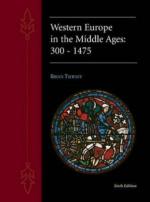|
This section contains 1,140 words (approx. 4 pages at 300 words per page) |

|
Oxford and the Empirical Approach.
While the University of Paris was earning its reputation as the premier school in the West for the study of theology—the Parens scientiarum ("The Mother of all Knowledge") as Pope Gregory IX (c. 1145–1241) put it—the University at Oxford in England was developing its own tradition and making its own unique contribution. Many Englishmen had been active in the translation process in Spain and returned to England with word of new concepts and instruments of which no one in Britain had heard. One example was the astrolabe, used to observe the position of celestial bodies. In response to the interest in these new ideas, the young university at Oxford adopted a decidedly empirical approach to knowledge, even to theological knowledge.
 Astrolabe, yellow copper, Islamic, 14th century. THE ART ARCHIVE/NATIONAL MUSEUM, DAMASCUS, SYRIA/DAGLI ORTI.
Astrolabe, yellow copper, Islamic, 14th century. THE ART ARCHIVE/NATIONAL MUSEUM, DAMASCUS, SYRIA/DAGLI ORTI.
Robert Grosseteste and Natural Philosophy.
|
This section contains 1,140 words (approx. 4 pages at 300 words per page) |

|




